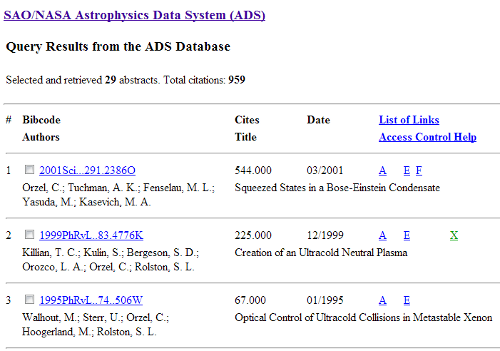Paige Brown Jarreau, who blogs at From the Lab Bench is in the throes of writing her dissertation about science blogging, and plowing through a lot of interview data. She’s sharing some of the process on the blog, and a lot more on Twitter, where it’s prompted a good deal of discussion. One of the… Continue reading Division of Labor in Science Communication
Category: Publishing
Imminent Death of the Paper Book Predicted, .GIF at 11
I got a royalty statement yesterday for How to Teach [Quantum] Physics to Your Dog (it continues to sell steadily, which is very gratifying), which includes a breakdown of the sales in terms of different formats. That reminded me of a particular annoying quirk of many recent discussions of the state of modern publishing, which… Continue reading Imminent Death of the Paper Book Predicted, .GIF at 11
Science Is Not Solitary
There was another round of the “who counts as a scientist?” debate recently, on Twitter and then on the Physics Focus blog. In between those, probably coincidentally (he doesn’t mention anything prompting it), Sean Carroll offered a three-step definition of science: Think of every possible way the world could be. Label each way an “hypothesis.”… Continue reading Science Is Not Solitary
Affirmation Means Employment
I saw a bunch of people yesterday tweeting approval of John Hawks’s complaint about academic timidity when it comes to blogging: The bottom line is: People need to decide if they want to be heard, or if they want to be validated. I have long been an associate editor at PLoS ONE, and once I… Continue reading Affirmation Means Employment
The Trouble With Physics
For something related to the book-in-progress, I was reading Raymond Chandler’s classic essay “The Simple Art of Murder” last night, and stumbled across the following quote, where he laments the number of stories in print in the mystery genre in 1950: In my less stilted moments I too write detective stories, and all this immortality… Continue reading The Trouble With Physics
Science Online Advice: Writing Books
Last Friday, when I didn’t have any time to blog, Zen Faulkes wrote an interesting wrap-up post on Science Online 2013 in which he declared he won’t be back. Not because it was a bad time, but because other people would benefit from it more, and his not going frees up a spot for somebody… Continue reading Science Online Advice: Writing Books
Do the New Paper Dance
OK, it’s a paper I mentioned here before, when it went up on the arxiv, but the “Comments on Atomic, Molecular, and Optical Physics” article I wrote this summer is up on the Physica Scripta web site now, and for the next not-quite-thirty days it’s free to read and download: Searching for new physics through… Continue reading Do the New Paper Dance
How Did the arXiv Succeed?
In which we look again at the question of why, despite the image of physicists as arrogant bastards, biologists turn out to be much less collegial than physicists. ———— While I was away from the blog, there was a spate of discussion of science outreach and demands on faculty time, my feelings about which are… Continue reading How Did the arXiv Succeed?
It Figures: The Historical Aesthetics of Scientific Publishing
Steve Hsu has a post comparing his hand-drawn diagrams to computer-generated ones that a journal asked for instead: He’s got a pretty decent case that the hand-drawn versions are better. Though a bit more work with the graphics software could make the computer ones better. This reminded me, though, of something I’ve always found interesting… Continue reading It Figures: The Historical Aesthetics of Scientific Publishing
This Week in the Journal of Previously Solved Problems
Over at the Scholarly Kitchen, Kent Anderson complains about the uselessness of comments on journals: Comments in online scientific journals have been notoriously poor — either too much material of uneven quality or too little discussion to amount to a hill of beans. All too often, commenting has to be shut down because internecine and… Continue reading This Week in the Journal of Previously Solved Problems

